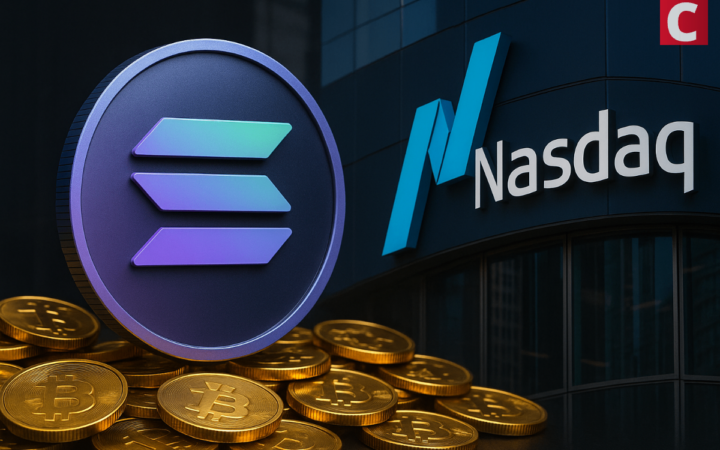
Darya is a crypto enthusiast who strongly believes in the future of blockchain. Being a hospitality professional, she is interested in finding the ways blockchain can change different industries and bring our life to a different level.
Coinbase has decided to join companies that chose direct listings rather than IPOs to go public and avoid diluting their existing shareholders and handing over cheap stock to new investors.

The leading digital currency exchange Coinbase has revealed its plans to go public. Instead of running a traditional IPO, Coinbase is intending to become a publicly-traded company pursuant to a proposed direct listing of its Class A common stock. The exchange has already confidentially submitted a draft registration statement on Form S-1 with the US Securities and Exchange Commission (SEC). After the SEC completes the review process, the Form S-1 will become effective.
Founded back in 2012, Coinbase is the US largest digital currency exchange. It is fully regulated and licensed in 40 US states and territories. It offers a wide variety of products including cryptocurrency investing, an advanced trading platform, custodial accounts for institutions, a wallet for retail investors, and its own US dollar stable-coin. Initially, it offered only Bitcoin (BTC) trading. However, its list quickly expanded to include Ethereum (ETH), Litecoin (LTC), Bitcoin Cash (BCH), XRP, and many others with the promise of more as long as its requirements are met. Notably, Coinbase offers bitcoin transactions and storage in 190 countries worldwide and deals with fiat currencies in approximately 32 countries.
Coinbase has decided to join companies that chose direct listings rather than IPOs to go public and avoid diluting their existing shareholders and handing over cheap stock to new investors. The first company to do so was Spotify Technology SA (NYSE: SPOT) back in 2018. Since then, Slack Technologies Inc (NYSE: WORK), Palantir Technologies Inc (NYSE: PLTR) and Asana Inc (NYSE: ASAN) have followed. Game company Roblox is also planning to conduct direct listing next month but has faced the SEC scrunity.
In a memo to employees, CFO Alesia Haas wrote:
“We believe a direct listing more closely follows the ethos of crypto and Coinbase because it democratizes access and opportunities for all investors.”
A traditional IPO and a direct listing are similar in both being ways to go public and sell shares on the open market. However, in comparison with a traditional IPO, direct listings are faster and cheaper. In a traditional IPO, investment banks serve as underwriters for the issuing stock, which adds cost and time to go public. Besides, banks’ participation provides security. In an IPO, the underwriters distribute shares among select brokerages. Then, they impose restrictions on who is able to participate in the IPO. As a result, it may be hard for investors to gain access to IPOs.
In contrast, in a direct public offering everyone can get access and trade stocks listed on the market. The availability of shares is dependent upon early investors, with the price depending upon volatile market demand. As a result, a direct public offering is riskier than an IPO.
Disclaimer: Coinspeaker is committed to providing unbiased and transparent reporting. This article aims to deliver accurate and timely information but should not be taken as financial or investment advice. Since market conditions can change rapidly, we encourage you to verify information on your own and consult with a professional before making any decisions based on this content.

Darya is a crypto enthusiast who strongly believes in the future of blockchain. Being a hospitality professional, she is interested in finding the ways blockchain can change different industries and bring our life to a different level.




